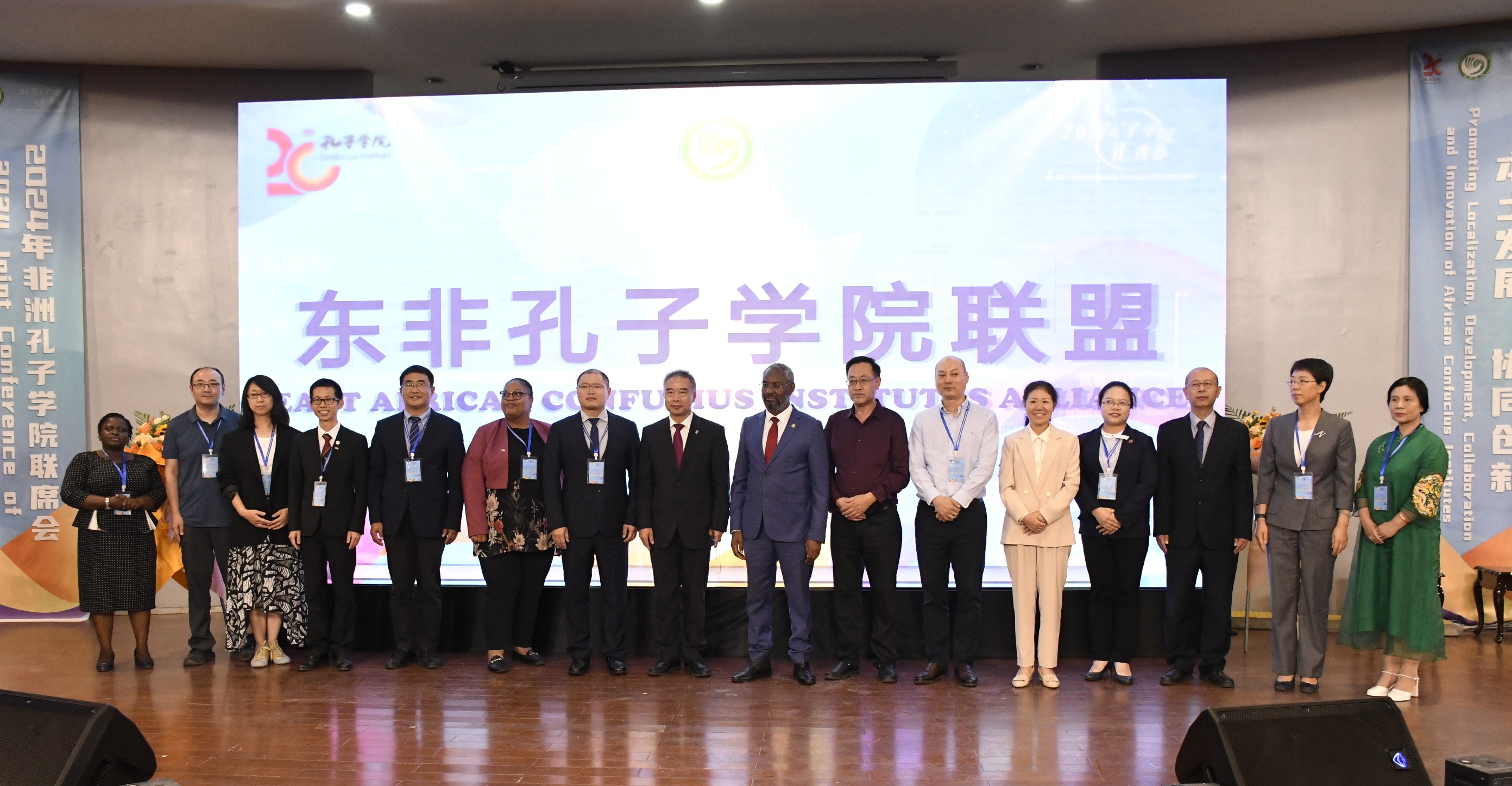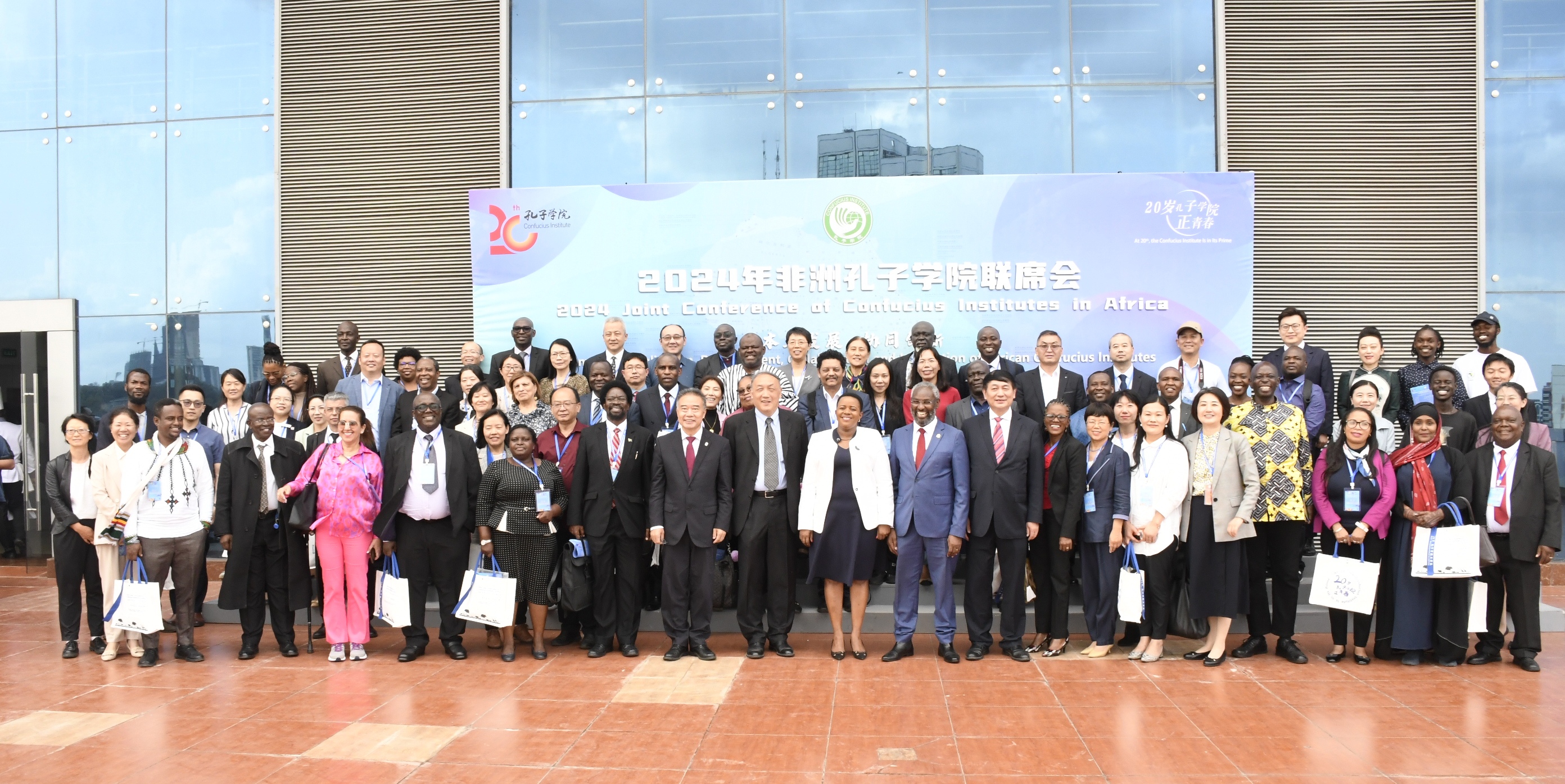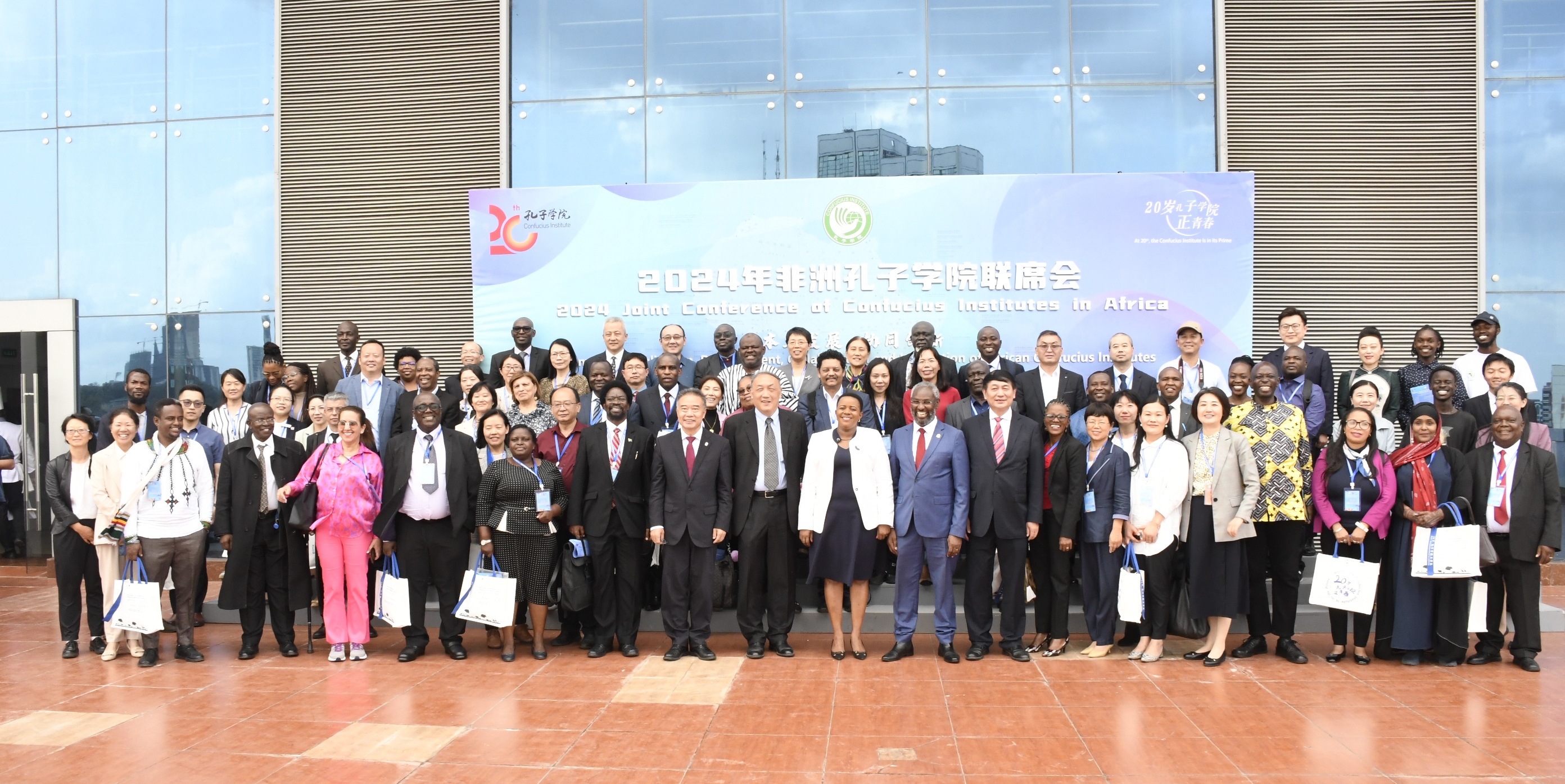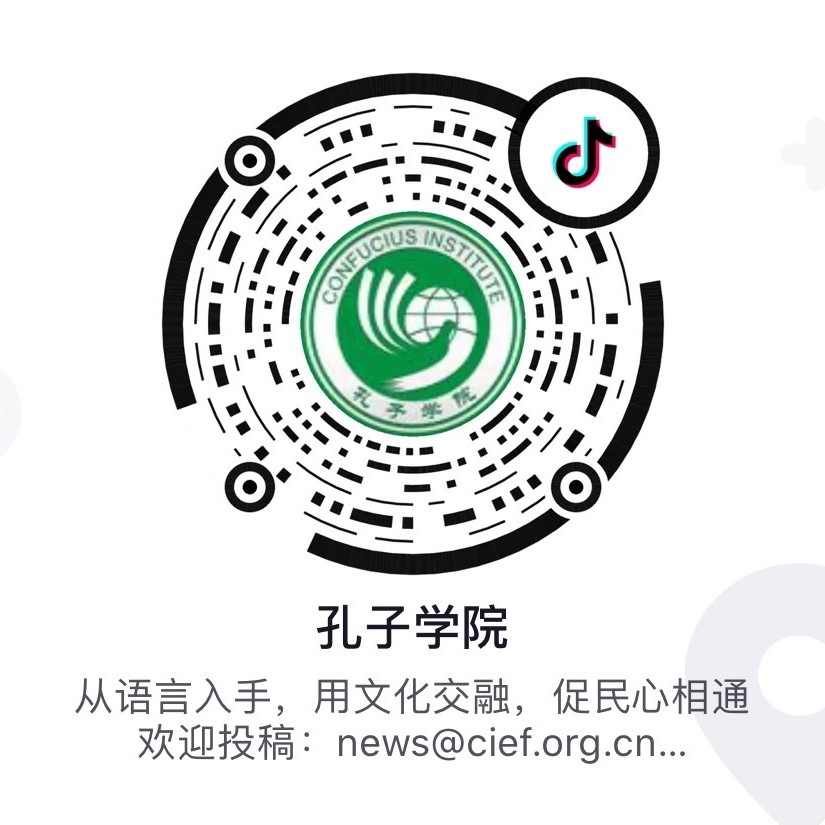The 2024 Joint Conference of Confucius Institutes in Africa, jointly organized by Chinese International Education Foundation (CIEF), University of Nairobi (UoN) and the Confucius Institute at University of Nairobi (CIUoN), commenced on May 30th, 2024.
Themed upon “at 20th, the Confucius Institute is in its prime,” this joint conference, titled “Promoting Localization, Development, Collaboration and Innovation of African Confucius Institutes”, is one of the series events to celebrate the 20th anniversary of the founding of Confucius Institute (CI). Nearly 400 people attended the opening ceremony, including representatives from Ministry of Education of Kenya, Ministry for Foreign and Diaspora Affairs of Kenya, Kenya Institute of Curriculum Development (KICD), Teachers Service Commission (TSC) of Kenya, Kenya National Examination Council (KNEC), Confucius Institutes and Classrooms in Africa, partners of CIUoN, and Chinese-funded enterprises. The ceremony features speeches of prominent attendees, including Yang Wei, President of the CIEF; Aurelia Chepkirui Rono, Principal Secretary for the State Department for Parliamentary Affairs within the Office of the Prime Cabinet Secretary (OPCS); Zhou Pingjian, Ambassador of the People’s Republic of China to Kenya; Stephen Kiama Gitahi, Vice-Chancellor of UoN; and Zhong Yinghua, Chair of the International Society for Chinese Language Teaching.

In his speech, President Yang Wei quoted President Xi Jinping’s address on the 8th Ministerial Conference of the Forum on China-Africa Cooperation (FOCAC): “China will never forget the profound friendship of African countries and will remain guided by the principle of sincerity, real results, amity and good faith and by the principle of pursuing the greater good and shared interests. China will work together with African friends to further the spirit of China-Africa friendship and cooperation across generations.” He noted that these are the lofty principles in operating Confucius Institutes and Classrooms. The first CI in Africa was established at the UoN in 2004. Since then, the CI has taken root and flourished across the continent, achieving significant results despite numerous challenges over the past 20 years. The contributions and achievements of all CIs have left remarkable traces on the African continent. With sincerity, mutual trust and joint efforts, Chinese and African teachers have demonstrated great dedication, while students have shown diligence and perseverance. The development and expansion of CIs are closely aligned with the actual needs of students, the conditions of the regions and countries, and the friendly cooperation between host countries and China, rendering Africa one of the regions with the most effective results.. Over the years, CIs in Africa have provided various Chinese language courses tailored to local needs to tens of thousands of students, contributing significantly to strengthening the long-standing friendship between China and Africa. He called on all parties to join hands for greater success of CIs in Africa in the next 20 years.

Principal Secretary Aurelia Chepkirui Rono spoke on behalf of the Minister of Education of Kenya. She noted that the CIs, by teaching Chinese language and culture, have built bridges of vitality between peoples and paved ways to education and career development for students. As demand for Chinese language learning grows, the Ministry of Education of Kenya has incorporated Chinese into its national education system, setting higher requirements for the development of local talent cultivation and teaching resources. To this end, Kenya is ready to sign an intergovernmental cooperation agreement with China to jointly promote the sustainable development of Chinese language education in Kenya.
Stephen Kiama Gitahi, Vice-Chancellor of UoN and Kenyan Director of CIUoN, stated that as the home of the first CI in Africa and one of the earliest globally, the UoN held the first Joint Conference of Confucius Institutes in Africa in 2009. Hosting this event again on the 20th anniversary of the CI carries historical significance. Since its establishment, the CIUoN has adhered to the principles of promoting innovation, localization and development, enhanced cooperation among various parties, and cultivated for various fields in Kenya considerable talents who are valuable assets for the UoN and the entire country.
At the opening ceremony, representatives from 16 CIs and Confucius Classrooms from 9 East African countries spontaneously established the East African Confucius Institutes Alliance, injecting new impetus into China-Africa language and cultural exchanges.
The two-day joint conference brought together around 100 representatives, including directors and teachers from 53 CIs and independent Confucius Classrooms across 37 African countries. They engaged in discussions on four main topics, namely “Foreign Language Education Policies and the Training of Native Language Teachers in African Countries,” “How does the Confucius Institute Lead the Way in Collaborating with the Community and Playing its Role in Serving Society” “Models of Cooperation between CIs and Chinese Enterprises, and the Development of CI’s ‘Chinese Plus’ Programs,” and “Characterization and Branding of Confucius Institutes in African Countries” During the conference, meetings between Chinese enterprises and CIs were held in parallel sessions, providing a platform of exchanges for various parties to expand cooperation and promote localization.
The 2024 Joint Conference for Confucius Institutes in Africa is the first regional overseas conference organized by the CIEF after its establishment. It aligns with the shared vision of “peace, development, cooperation, and win-win” between China and Africa, embodies the CI’s education philosophy of extensive consultation, joint contribution and shared benefits, and has been warmly received by all sectors of Chinese and African societies. With 2 decades of development, the CIs in Africa have witnessed tremendous progress. This conference, which reflects on the past and looks forward to the future, will undoubtedly leave an indelible mark in the history of international Chinese language education in Africa, and contribute African wisdom and experience to the development of the CI.






